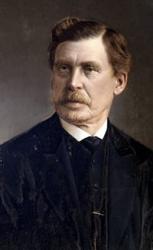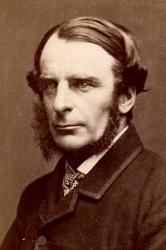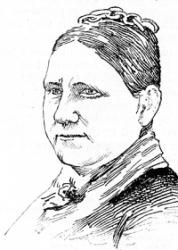1775 - 1838 Hymnal Number: d42 Author of "Praise the Lord, ye heavens adore him" in Hymns and Prayers for Schools Born: June 24, 1775, Plymouth, England.
Died: November 6, 1838, Gloucester, England.
Kempthorne, John, B.D., s. of Admiral Kempthorne, was born at Plymouth, June 24, 1775, and educated at St. John's, Cambridge (B.A. 1796, B.D. 1807), of which he subsequently became a Fellow. On taking Holy Orders, he became Vicar of Northleach, Gloucestershire, in 1816; Vicar of Wedmore, Somersetshire, 1827, and the same year Rector of St. Michael's, and Chaplain of St. Mary de Grace, Gloucester. He was also a Prebendary in Lichfield Cathedral from 1826, and sometime Examining Chaplain to the Bishop of that diocese. He died at Gloucester, Nov. 6, 1838. His hymnological work is:—
Select Portions of Psalms from Various Translations, and Hymns,from Various Authors. The whole Arranged according to the yearly Seasons of the Church of England , with attempts at corrections and improvements. By the Rev. John Kempthorne, B.D.....London. Batchard. 1810.
In this collection there are a few hymns of merit, as ”Forgive, O Lord, our wanderings past," "Great God, to Thee our songs we raise," and "Praise the Lord, ye heavens adore Him," which are usually ascribed, on D. Sedgwick's authority, to J. Kempthorne. These hymns, however, are not by Kempthorne, but were taken by him for his collection from the Foundling Hospital Psalms & Hymns, 1796 and 1801-9; and there is no evidence whatever that he had anything to do with that hymn-book. As that book is frequently quoted by hymnologists, we append the title-page of the 1801 ed., which is a reprint of that of 1797:—
Psalms, Hymns, and Anthems; sung in the Chapel of the Hospital for the Maintenance and Education of Exposed and Deserted Young Children. London, Printed in the Year M.DCCC.I. At the end of some copies of this edition there is pasted in a four-paged sheet of hymns which include, with others, "Praise the Lord, ye heavens, adore Him (q.v.)
In the first edition of his own Selection of Portion of Psalms, &c, 1810, Kempthorne did not in any way indicate his own hymns, but in the 2nd ed. of 1813 (which is a reprint of the 1st ed. with an Appendix of 11 hymns) he says in his Preface:—
“For Hymn 140 and Hymn, p. 267. Appendix; for almost all of Ps. 42, p. 197; Ps. 51, p. 57 and 61; Ps. 84, p. 195; Ps. 86, p. 134; Ps. 115, p. 49; Hymn 127 ; and for a considerable part of Ps. 22, p. 64; Ps. 122, p. 103; Ps. 133, p. 141; Ps. 139, p. 38; Hymns 20, 43, 54, 81, 97, 101, 118, and several others, the Editor is responsible, and acknowledges his obligations to some kind friends."
Of these hymns and psalm versions, which Kempthorne claims as his own, only one or two are in common use.
--John Julian, Dictionary of Hymnology (1907)
John Kempthorne


 My Starred Hymns
My Starred Hymns




